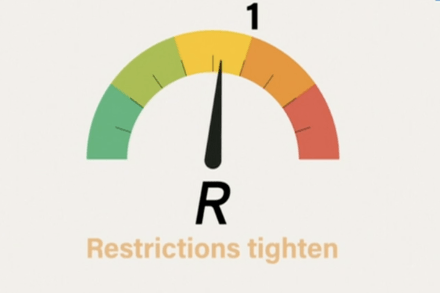The R-number – and the danger of false certainty
Not much about Boris Johnson’s Sunday night television address was clear. The one definite new measure – one which will shape coverage for weeks to come – is the UK’s new ‘COVID Alert Level’, a five-stage measure that the prime minister said would be determined primarily by ‘the R’ – the rate at which the virus grows. There’s just one problem with that. It’s a figure few people think we have any real ability to track day-to-day. In making its decisions, the government has very little scope for error: it knows lockdown comes at a huge economic toll. But it also knows that spotting a rise in cases just a




















